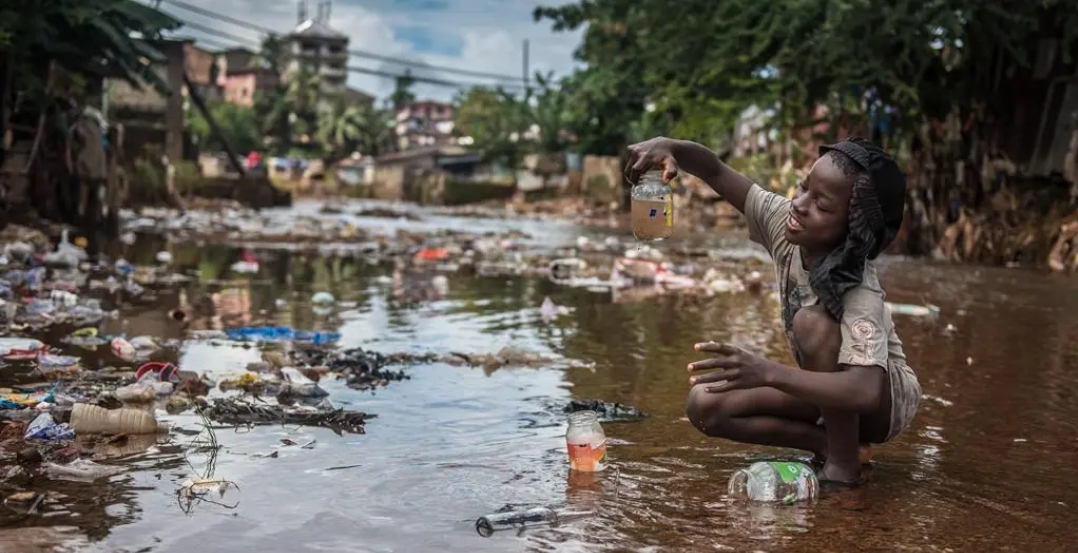By Olumide Idowu
Lagos State, a bustling metropolis in Nigeria, is not immune to the far-reaching impacts of climate change. As the effects of global warming continue to unfold, the connection between climate change and the spread of diseases like cholera becomes increasingly evident. In this article, I will delve into the dire challenges faced by Lagos State regarding climate change and cholera, underlining the pressing need for immediate action to safeguard the health and well-being of its residents.
The bacterium Vibrio cholerae, which causes cholera, poses a significant threat to the population of Lagos State. With its densely populated urban areas and inadequate sanitation infrastructure, the state is highly vulnerable to cholera outbreaks. The disease spreads through contaminated water and food, and its symptoms include severe diarrhoea and dehydration, which often lead to death if left untreated.
Climate change exacerbates the conditions that facilitate cholera transmission in Lagos State. Rising temperatures create a more favourable environment for the survival and reproduction of Vibrio cholerae bacteria. Moreover, changing rainfall patterns and an increased frequency of extreme weather events, such as heavy rainfall and flooding, contaminate water sources, further spreading the disease.
Rapid urbanisation in Lagos State has contributed to the challenges posed by the intersection of climate change and cholera. As the population grows, inadequate water and sanitation infrastructure strains the city’s ability to provide clean, safe water to all residents. The lack of proper waste management systems also increases the risk of cholera outbreaks as contaminated water sources become more prevalent.
In light of climate change, Lagos State must prioritise adaptation measures to combat the looming public health crisis of cholera. Enhancing water and sanitation infrastructure, including providing safe drinking water and improved waste management, is crucial. Additionally, promoting hygiene practices, such as handwashing and proper food handling, can help prevent the spread of cholera.
While adapting to climate change’s impacts is essential, mitigating its root causes is equally important. Lagos State can take steps to reduce greenhouse gas emissions by promoting renewable energy sources and implementing sustainable urban planning practices. The state can help mitigate the conditions that facilitate cholera transmission by addressing the underlying factors contributing to climate change.
Building resilience in the face of climate change and cholera requires a multi-sectoral approach. Collaboration between government agencies, healthcare providers, environmental organisations, and community leaders is crucial. Early warning systems, community education, and improved surveillance can help identify potential cholera outbreaks and enable prompt responses.
Lagos State is at the forefront of the challenges of climate change and the spread of cholera. The health and well-being of its residents require immediate action. By implementing adaptation measures, promoting sustainable practices, and investing in resilient infrastructure, Lagos State cannot only mitigate the impact of climate change on cholera but also create a safer and healthier environment for its population. To safeguard Lagos State’s future, it is critical to prioritize the intersection of climate change and public health, offering a beacon of hope for a healthier future.
Olumide Idowu – Executive Director, ICCDI Africa

